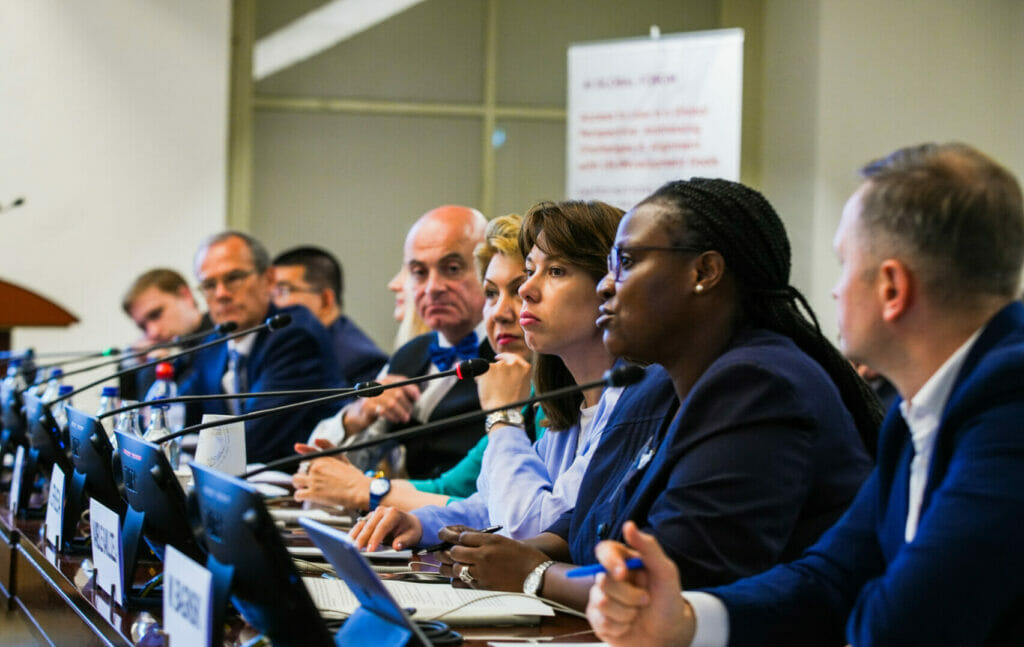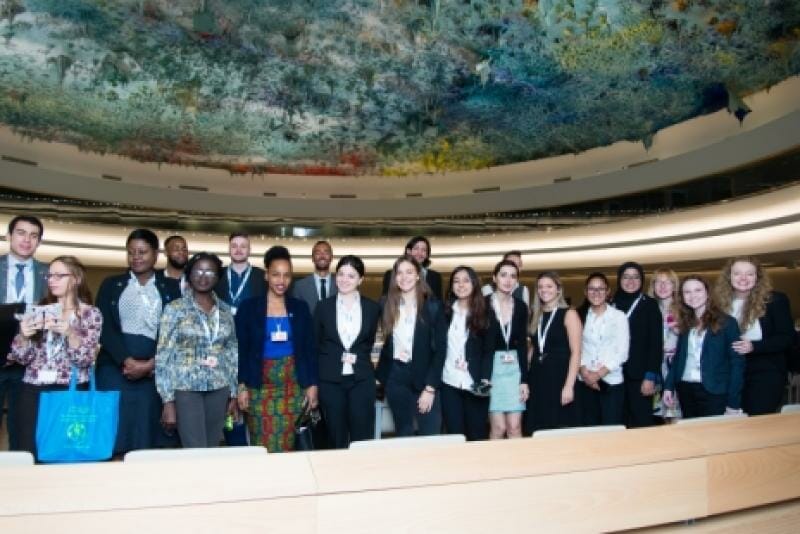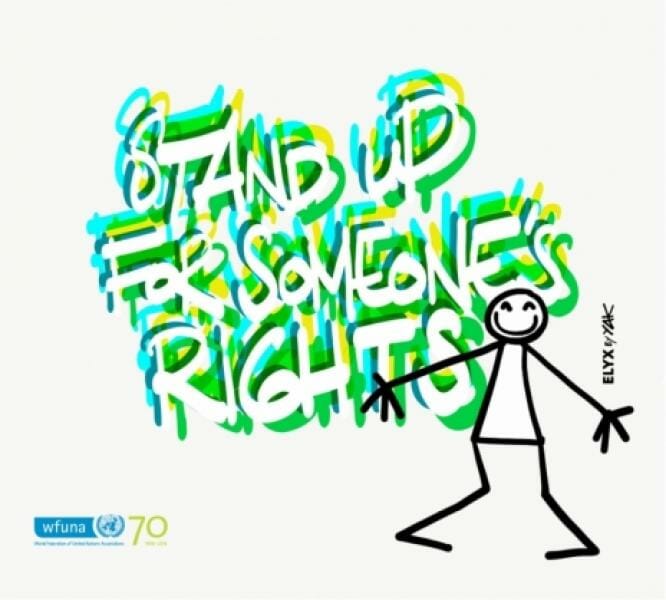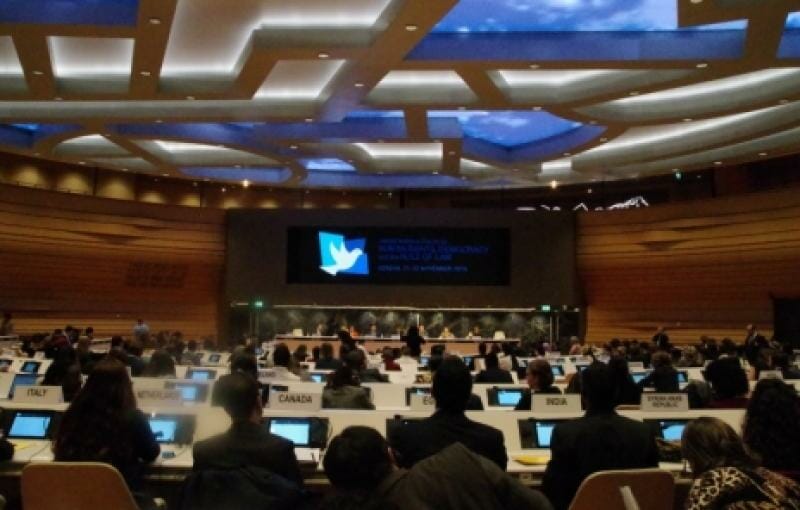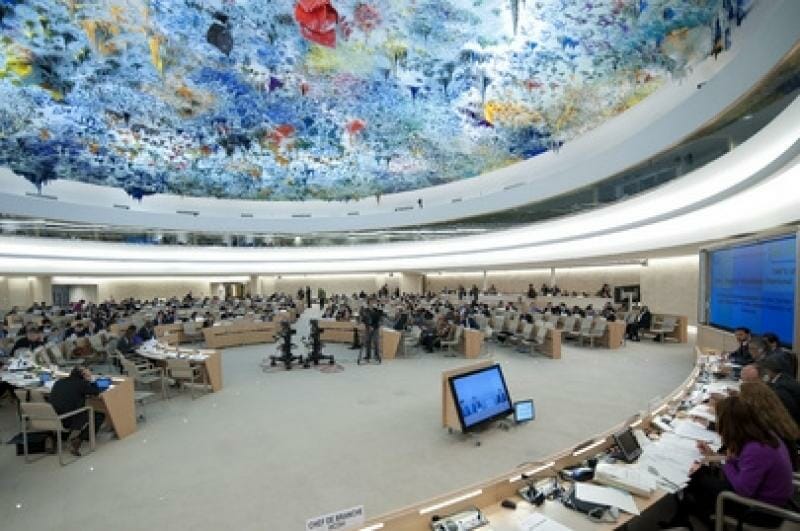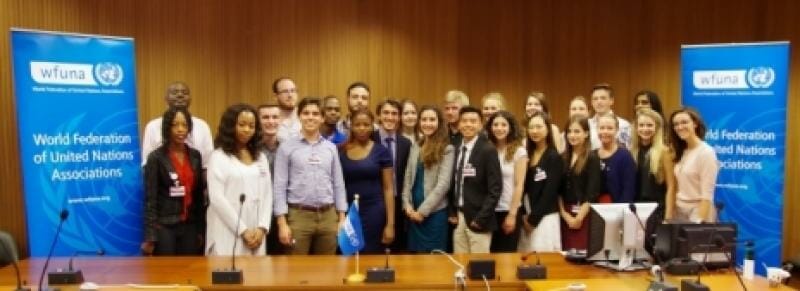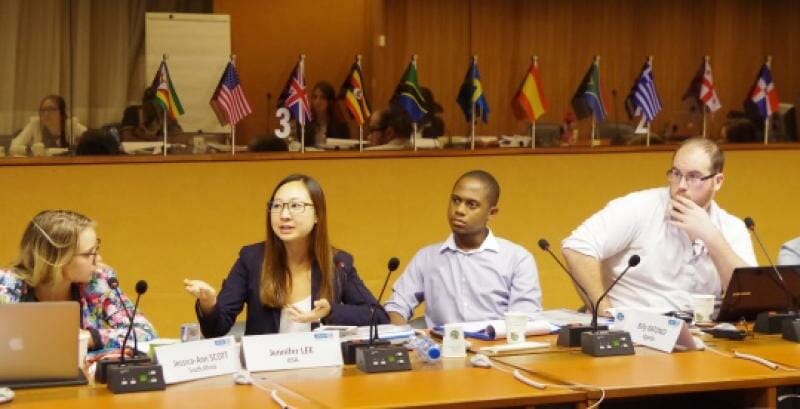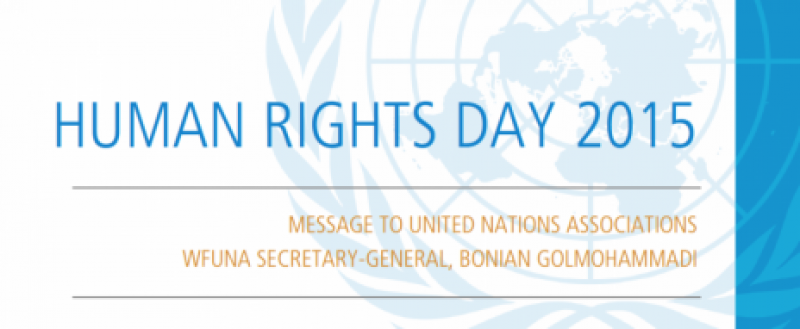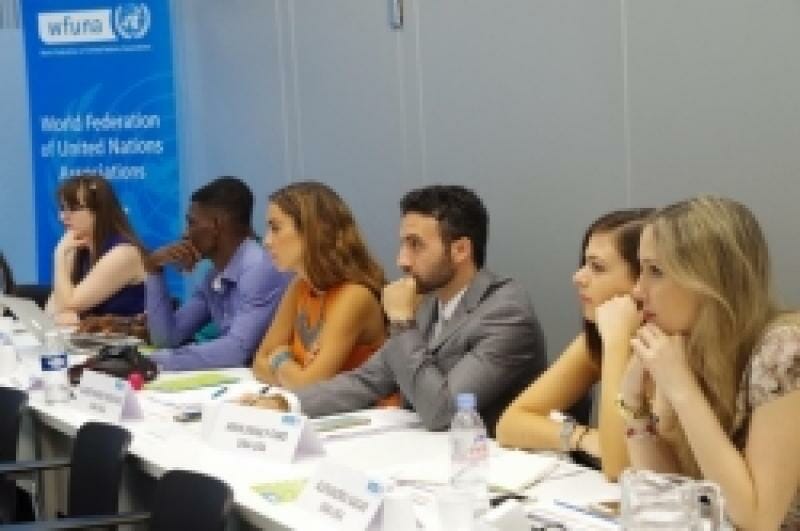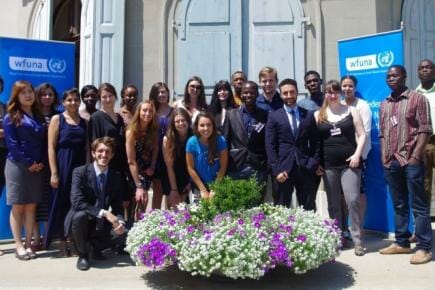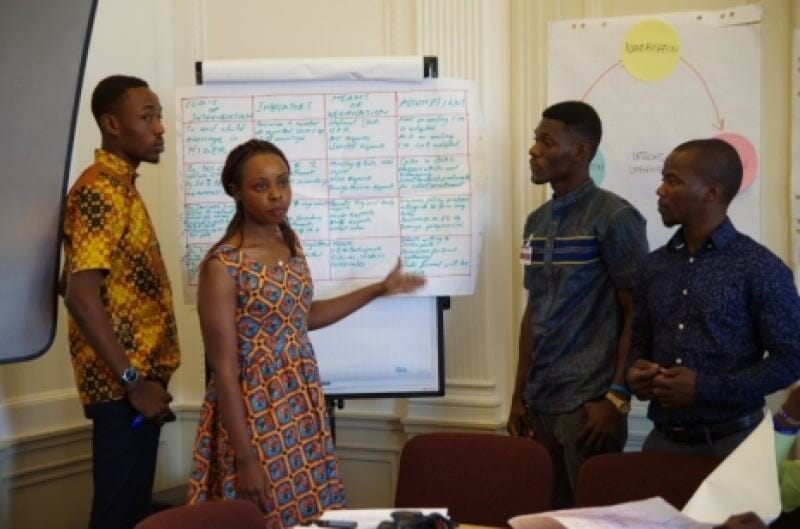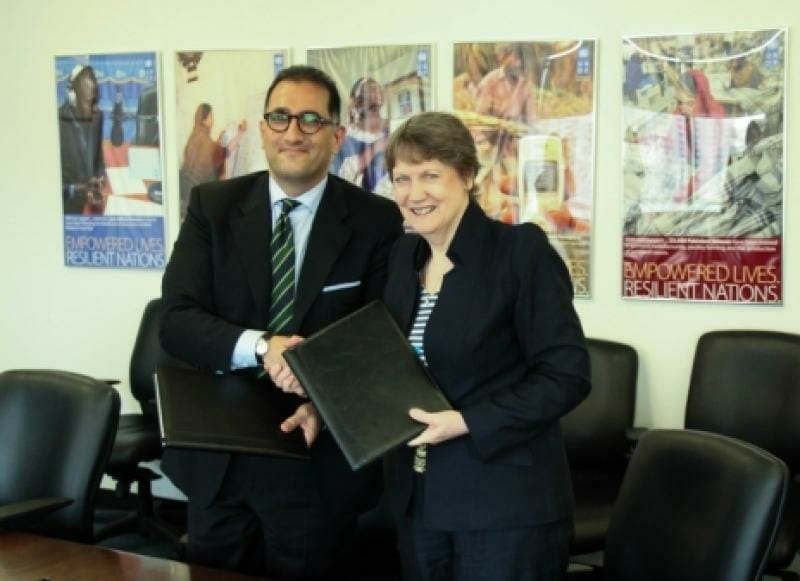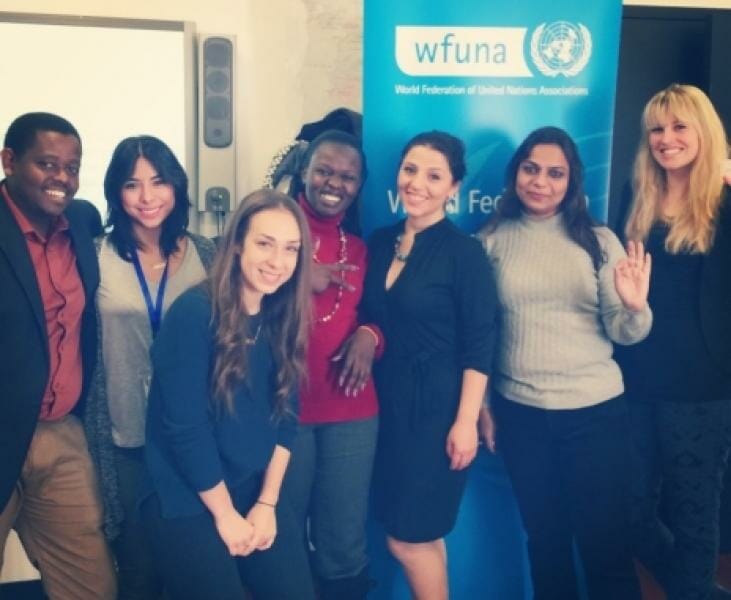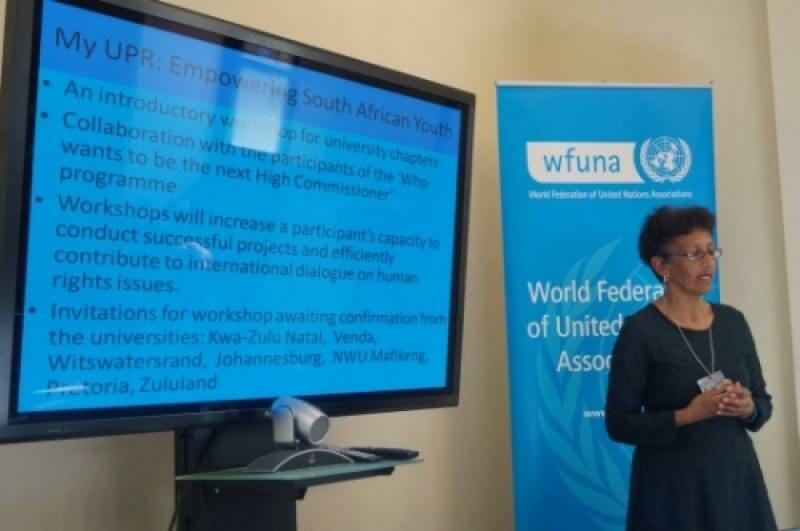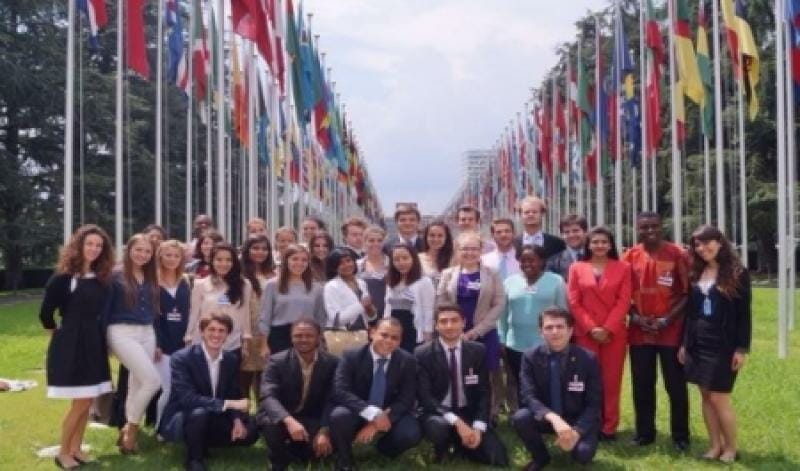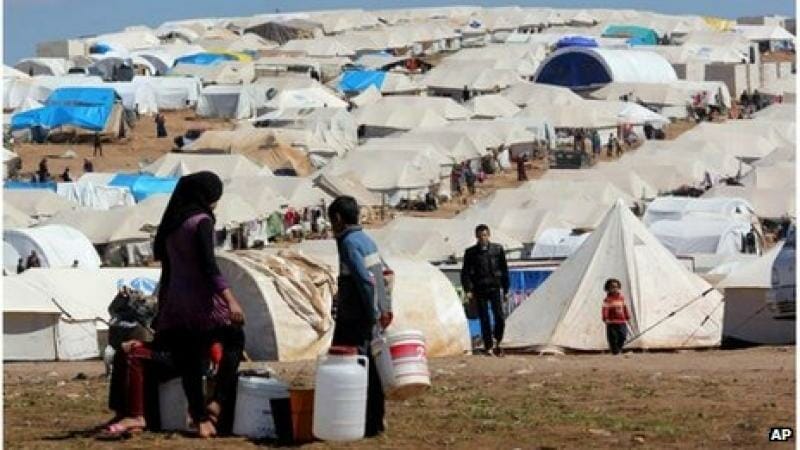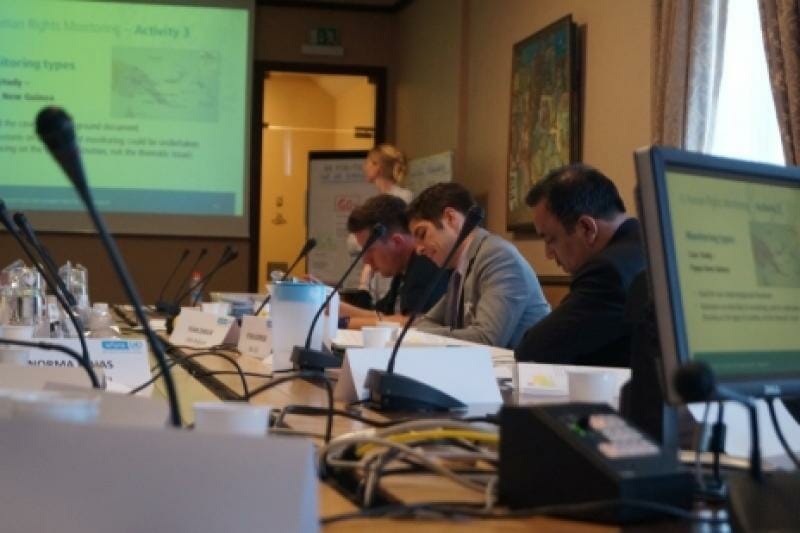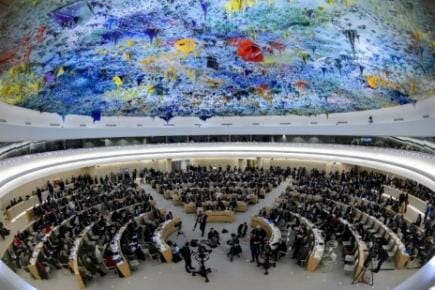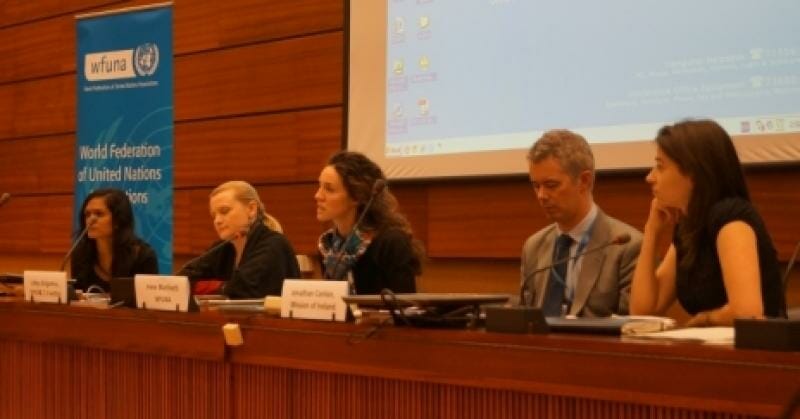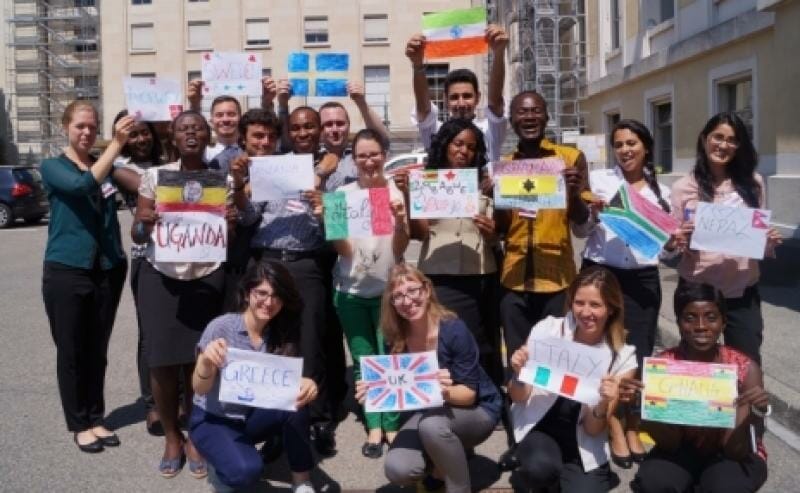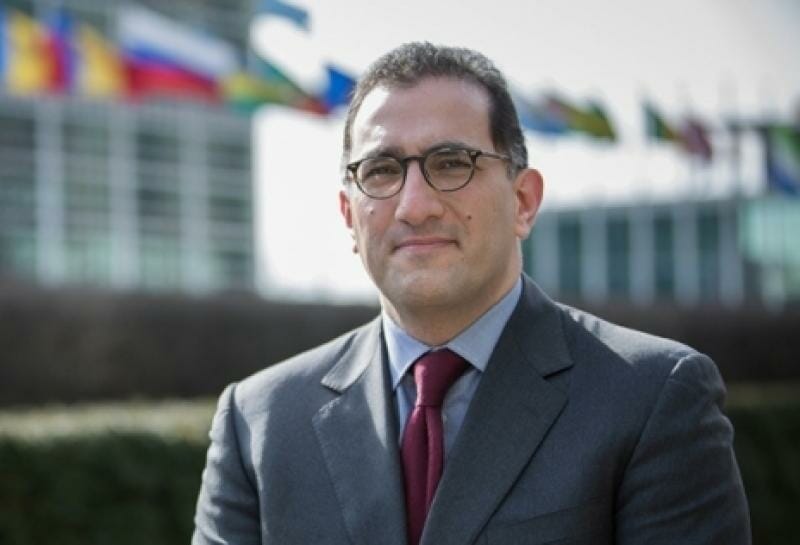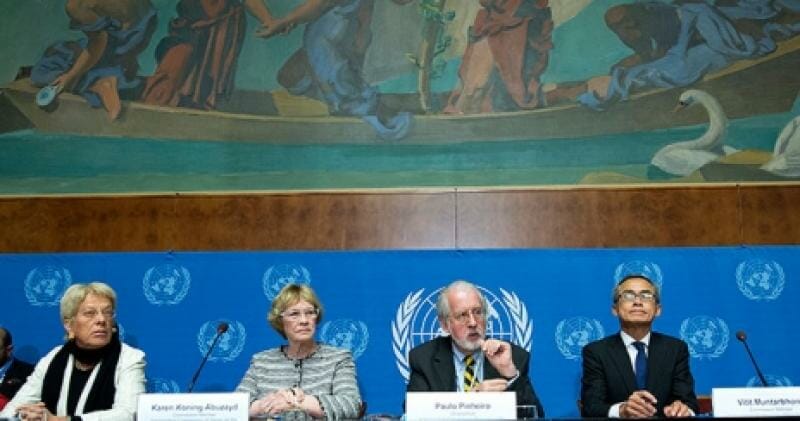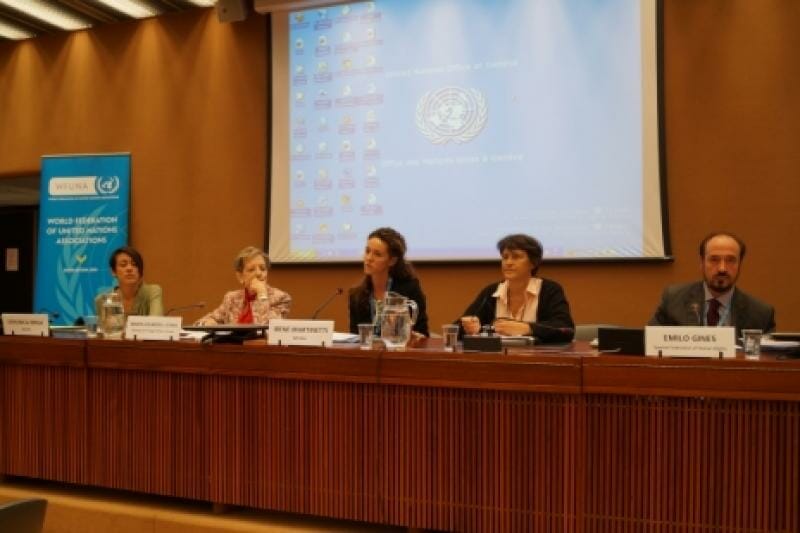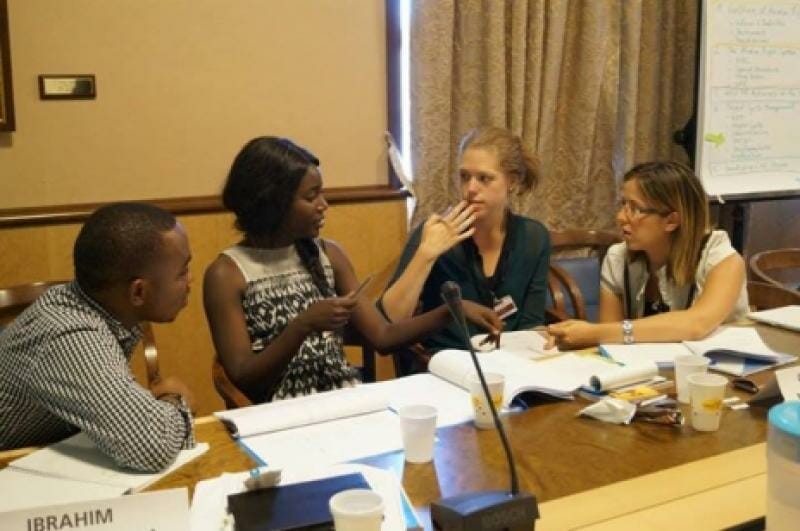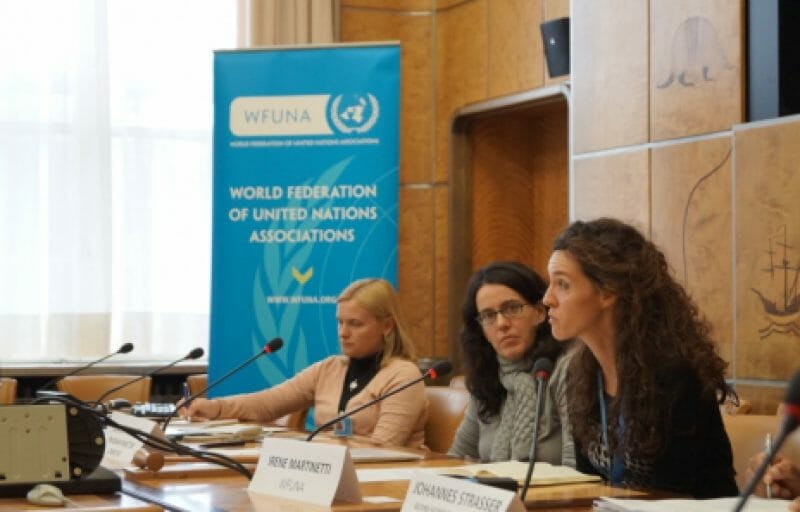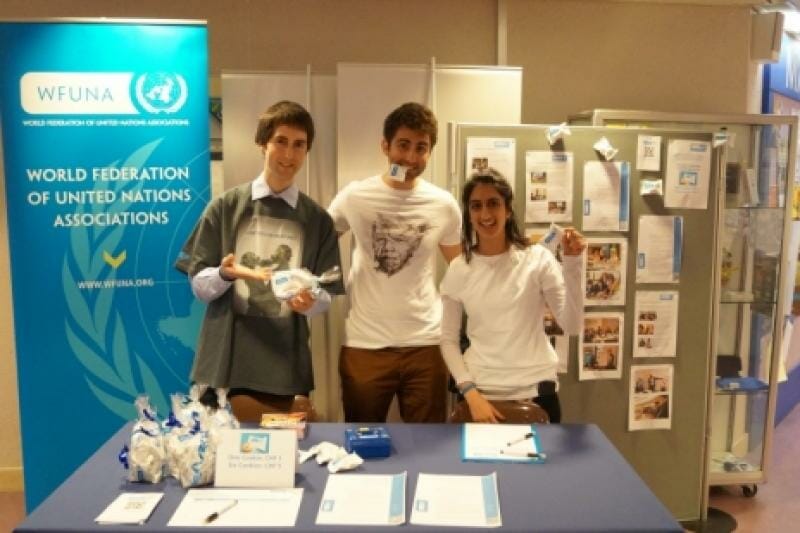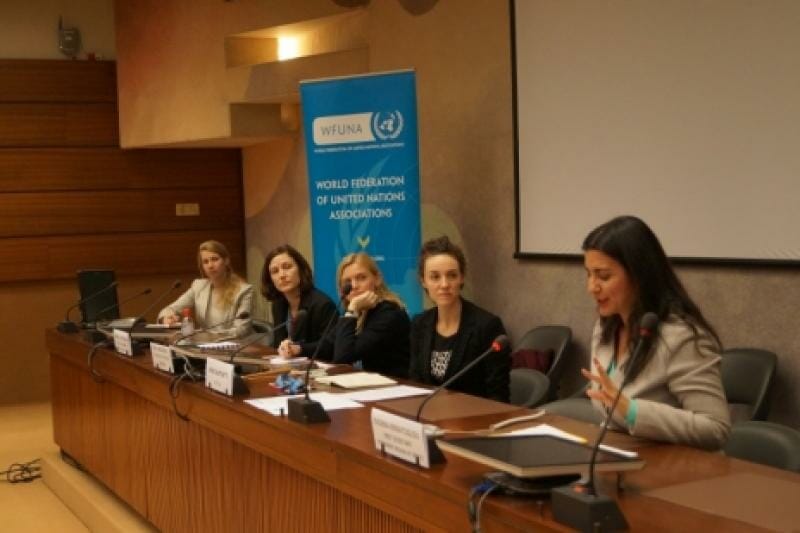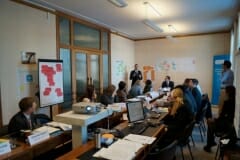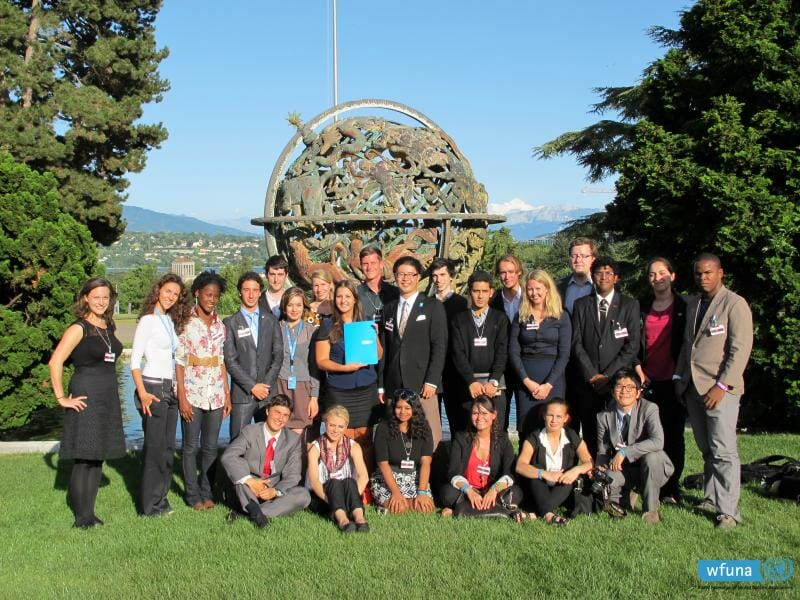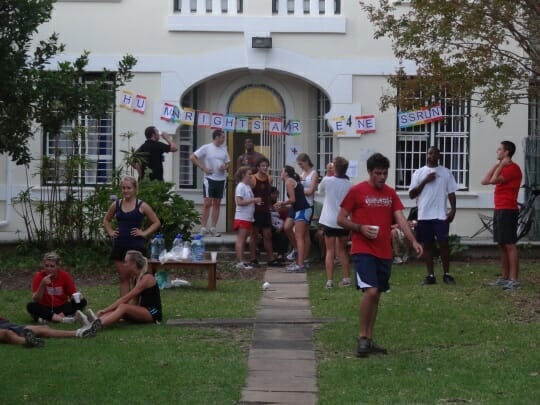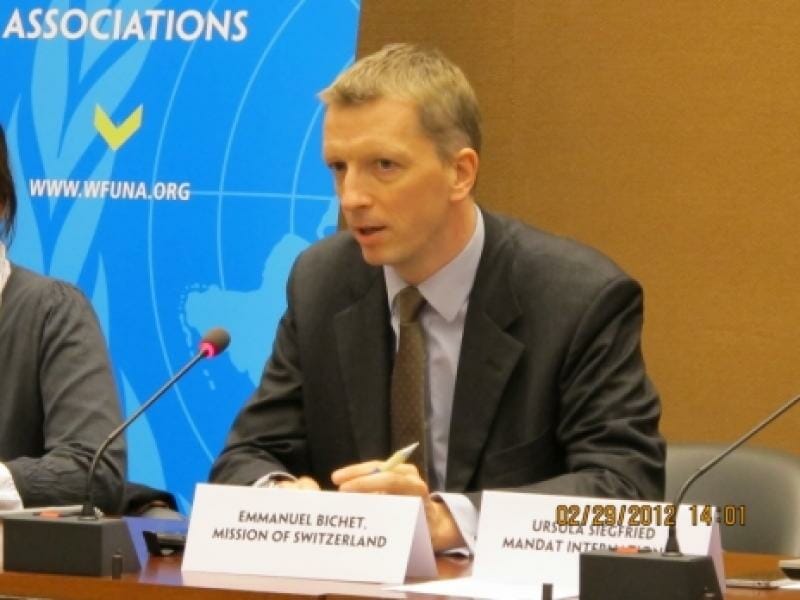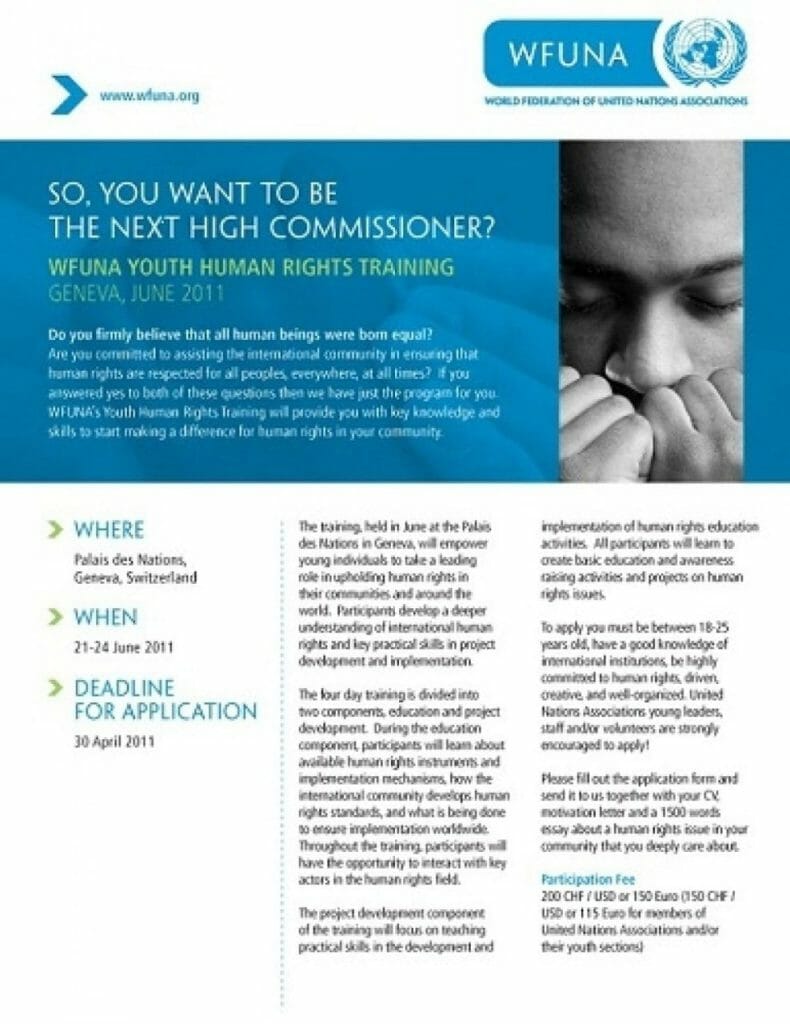The 25th Human Rights Council (HRC) kicked off on Monday 3 March 2014. The Council, established in 2006, gathers 3 times a year in the Palais des Nations in Geneva, and holds its major session in March for a period of 4 weeks. The agenda of the council is divided into 10 items that will be tackled throughout the month. States and various organizations have the possibility to hold parallel events to raise their concerns on specific issues linked to Human Rights, to share experience and encourage interactive dialogue, or to discuss draft resolutions to be adopted by the end of the session. Over 140 parallel events will take place during the 25th session of the HRC.
Opening
Opening the session, John Ashe, President of the General Assembly, recalled the importance of the Human Rights Council as the “Global bearer of Human rights”. He stressed its growing importance, notably though an increasing number of mandates, thematic debates and interactive dialogues over the years. He mentioned addressing inequality as a major theme for the post-2015 agenda.
UN Secretary General Ban Ki-moon echoed the call for inclusion of inequality issues in the post 2015 agenda, especially vis-à-vis vulnerable groups. Taking notice of the heavy toll of human rights abuses still perpetrated nowadays he called the Security Council to take actions to help the Syrian people. He underlined his will to help the people of Sri Lanka, South Sudan and the Democratic People’s Republic of Korea. The Secretary General took the occasion to stress the importance of his Action plan “Rights up front”, launched last year, which aims at tackling human rights violations more effectively. Along with the High Commissioner for Human Rights Navy Pillay, he underlined the important role of civil society and the need to protect human rights defenders from reprisals.
“Let us walk together to secure all human rights.” Ban Ki Moon
Highlights of the week
In her Annual Report to the Council, United Nations High Commissioner for Human Rights Navy Pillay stressed that, established more than 20 years ago, OHCHR has brought and ensured the centrality of human rights to the work of the UN. She outlined the Office’s thematic priorities:
- Discrimination (towards indigenous people, minorities, women, disabled people…),
- Impunity, rule of law and democratic society
- Poverty and economic, social and cultural rights,
- Migration,
- Violence and insecurity,
- Human rights mechanisms and international law.
This first week has also been an occasion to hold High-Level Panels and dialogues on timely and important issues for the Council:
The High level panel on Human Rights mainstreaming on Tuesday morning focused this session on the human rights of migrants.
Commissioner underlined the opportune moment that the 25th session of the Council represents to tackle the question of migration. Ms Pillay announced that the Office of the High Commissioner for Human Rights (OHCHR) is currently drafting a set of guidelines and principles to help and guide States and called for this issue to be included in the post-2015 agenda. François Crepeau, the Special Rapporteur on the Human Rights of the migrants urged governments to include human rights for migrants in the forthcoming agenda, for they are specifically vulnerable people. The emphasis was also laid on children: more than 35 million of migrants are under 20 years-old- and women, who are the first victims of smugglers. M Guy Ryder, the Director General of the International Labor Organization (ILO), as well as other panelists, underlined the participation of migrants in economic growth as an “enabler to development”. A common call was also sent to help fighting against the negative prejudices towards migrants in the public opinion.
High level dialogue on the promotion of preventive approaches within the UN system: “prevention is better than cure”.
This session aimed at tackling global crises in time in order to have the most powerful impact. The Acting Director General of the UnitedNations Office at Geneva (UNOG), Michael Moller, noticed that the UN is too often reactive more than proactive and called on strengthening and promoting capacity building. “We need to change our mindset”, which will not be easy nor quick, but will still be a requirement to have a more comprehensive and cross cutting approach on todays’ realities and challenges.
High level panel on the question of death penalty: Navy Pillaywas present to open the session by first reminding the blatant violation that death penalty is in regard to the most basic human right: the right to life. K Bloodworth, an American citizen, convicted to death penalty for a crime he had not committed, and the first person to be exonerated thanks to DNA tests gave a powerful testimony.. Some countries including Kuwait and Saudi Arabia reaffirmed the capital punishment as a national right to ensure security.
Focus on countries
Alongside the thematic panels and discussions that took place throughout the week, the critical situation in the following countries remained at the forefront of States concerns:
- As Syria remains in a situation of deep crisis a great number of States s raised their concern for the stability and the future of the region. In his opening statement, Ban Ki-moon called for the Security Council to take action to resolve the Syrian crisis.
- The unstable situation in Ukraine was also a source of attention for many States: notably, the European countries, as well as the United States of America and Canada shared their deep concern for the Human Rights violations and the threat for state sovereignty.
- The Democratic People’s Republic of Korea was at the core of many States’ statements: the report published most recently on the situation of human rights in the country was alarming and the Human Rights Council expressed its willingness to tackle these profound violations and improve the situation.
- The humanitarian crises in Sri Lanka, Central African Republic and South Sudan have also been mentioned by the Secretary General the High Commissioner and several States as problematic and requiring special attention.



